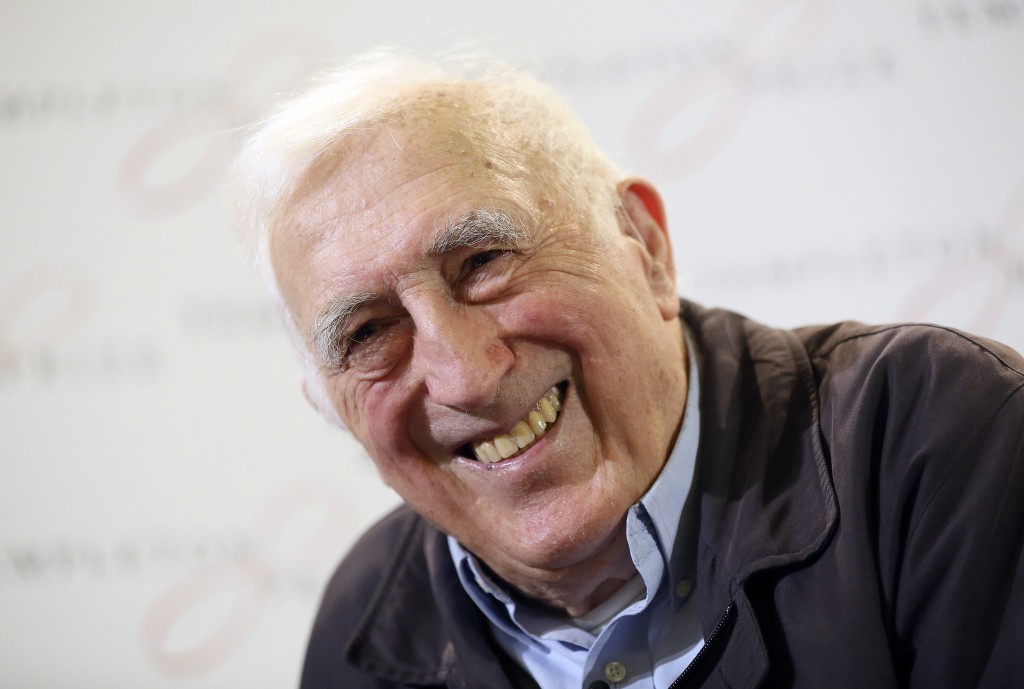Jean Vanier, the founder of L’Arche, an international network of communities where people with and without intellectual disabilities live and work together as peers, has won the 2015 Templeton Prize. The Templeton Prize is effectively the “Nobel Prize for religion” and is worth $1.7m.

(Photocredit: Templeton Prize: Paul Hackett)
Jean Vanier joins a distinguished group of 44 former recipients of the Templeton Prize, including Mother Teresa, who received the inaugural Prize award in 1973, Aleksandr Solzhenitsyn (1983), and Canadian philosopher Charles Taylor (2007). Last year’s Templeton Prize recipient, Czech priest and philosopher Tomáš Halík, followed Desmond Tutu, the former Anglican archbishop of Cape Town, South Africa, in 2013 and the 2012 Templeton Laureate, the Dalai Lama.
Vanier, now 86, was formerly an officer in the British Navy. It was during his time in the Navy that he was moved by his experience in visiting psychiatric hospitals when an institutionalised man asked him simply “Will you be my friend?”
Soon after, Vanier invited two men from an institution, Raphael Simi and Philippe Seux, to live with him in a small house in Trosly-Breuil, a village north of Paris in 1964.
He named the house L’Arche (French for “ark” and “arch”), to symbolise both Noah’s Ark, a “boat” to which he could invite people in pain, and an “arch” or bridge connecting heaven and earth.
While Vanier continues to lives in that community to this day, there are now 147 L’Arche residential communities operating in 35 countries. There are communities in Melbourne, Brisbane, Canberra Hobart and Sydney, typically consisting of several linked households.
L’Arche provides community rather than a medical or social service model of care. “At L’Arche, people with intellectual disabilities, and those who assist them, live together and are equally responsible for the life of their home and community,” according to L’Arche Australia.
“Our experience recognises the ability of people with intellectual disabilities to welcome and accept others as they are is greater than people without intellectual disabilities. We believe that this gift has an important and transformative effect for many people.”
In L’Arche, people who choose to share the life of people with an intellectual disability “assist” them in a wide variety of tasks: cooking, household maintenance, medical or personal care, gardening. The term “assistant” includes both volunteers and employees. People with intellectual disabilities in L’Arche are not clients, patients or recipients of services but friends, teachers and companions.
Possibly the best known assistant (besides Jean Vanier himself) was the restless Catholic writer Henri Nouwen, who found at the L’Arche community of Daybreak in Canada the peace that eluded him as a theological teacher at Notre Dame, Yale, Harvard, or the Liberation Theology movements in Latin America.
In his book Journey to Daybreak, Nouwen describes his inner struggle to accept “downward mobility”: he wrote “I see choosing to become poor is choosing to make every part of my journey towards Jesus.”
In January, Vanier spoke on the subject “Why the strong need the weak” to a room of dignitaries in the British House of Lords.
“”The secret of L’Arche is to meet people,” Vanier said according to the Church Times. “ A lot of young people come to do good, but they have also been formed by a culture of winning, of success, of being recognised, applauded, and so on. And so, when those who are moving up to the top through education meet those who are at the bottom of society, something happens. There’s a spark, and both groups change.
“People who came to do good discover that the people with disabilities are doing them good: they are becoming more human.”
Vanier told the story of a L’Arche worker in cradling a male prostitute dying of an overdose in a Sydney park who said, “You have always wanted to change me, but you have never met me.”
Email This Story
Why not send this to a friend?
